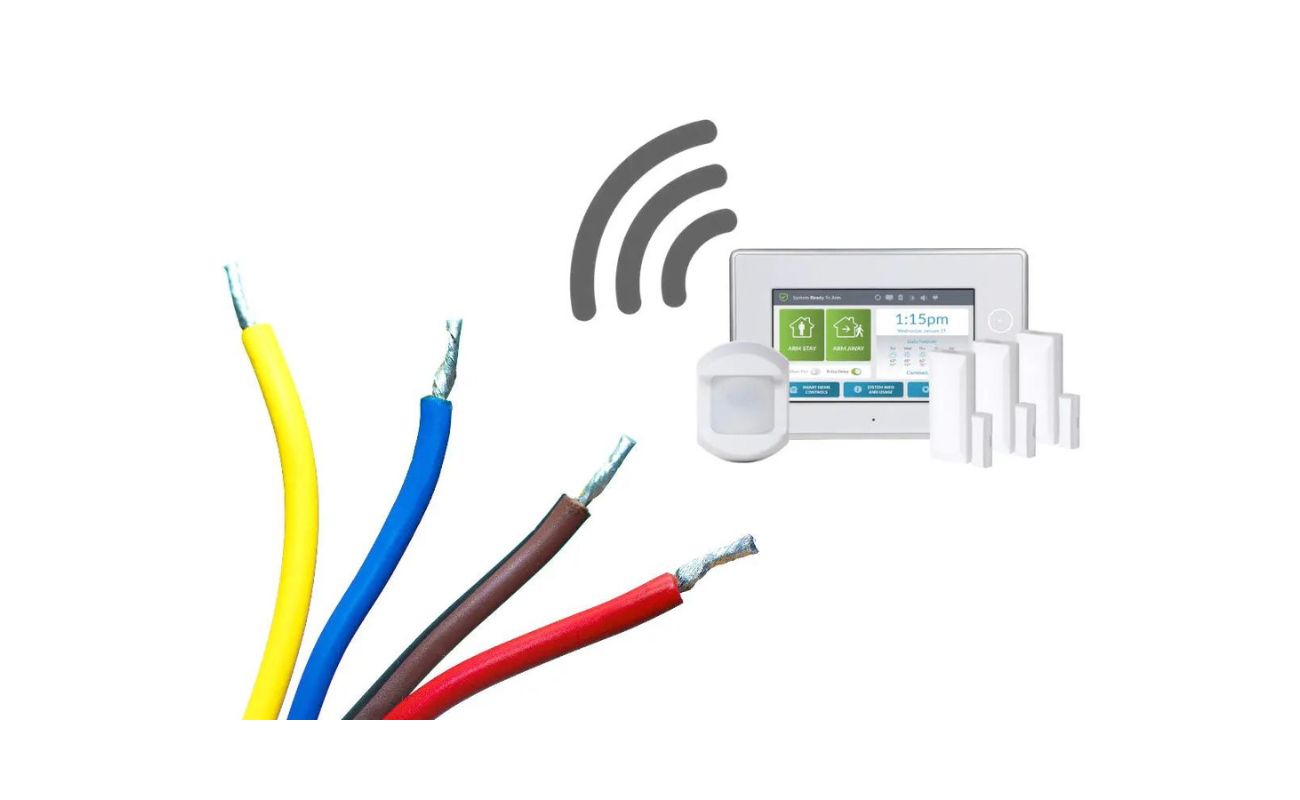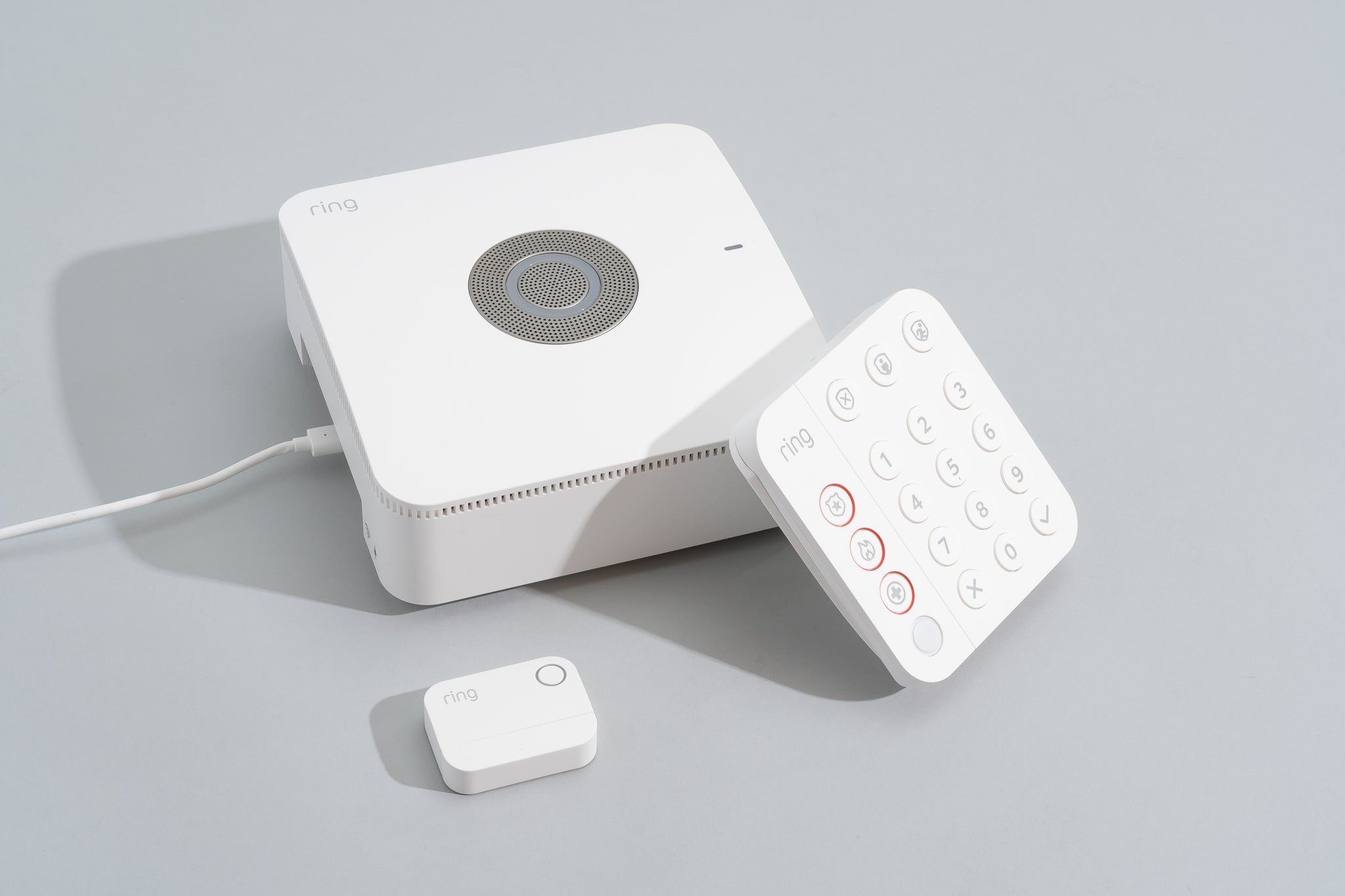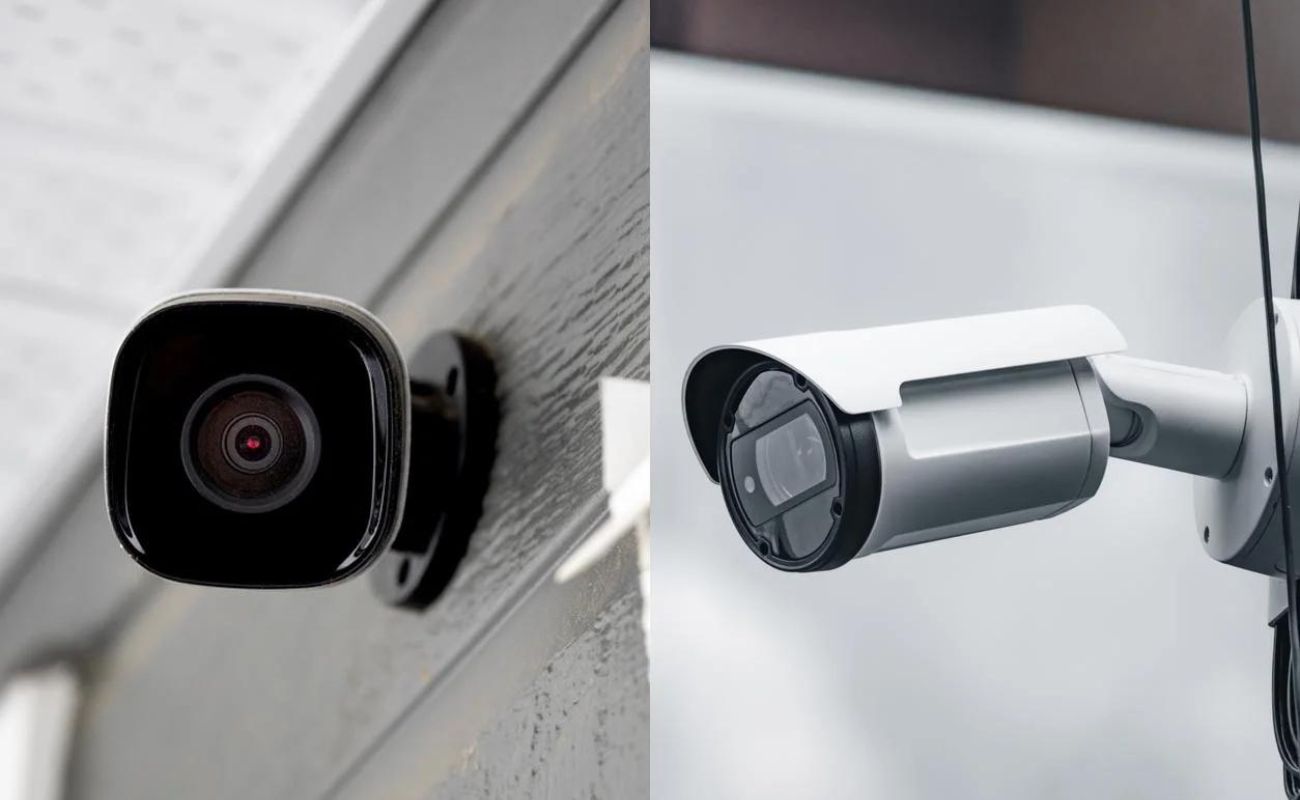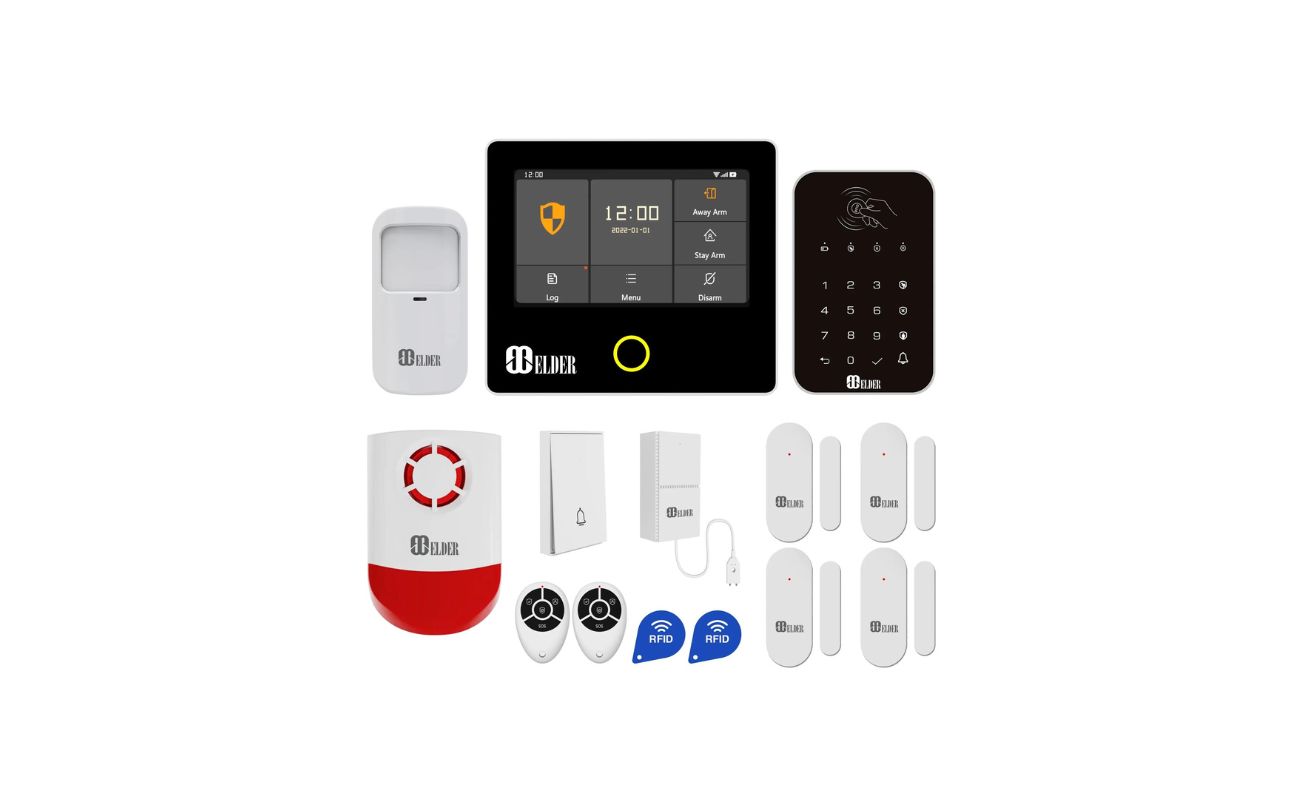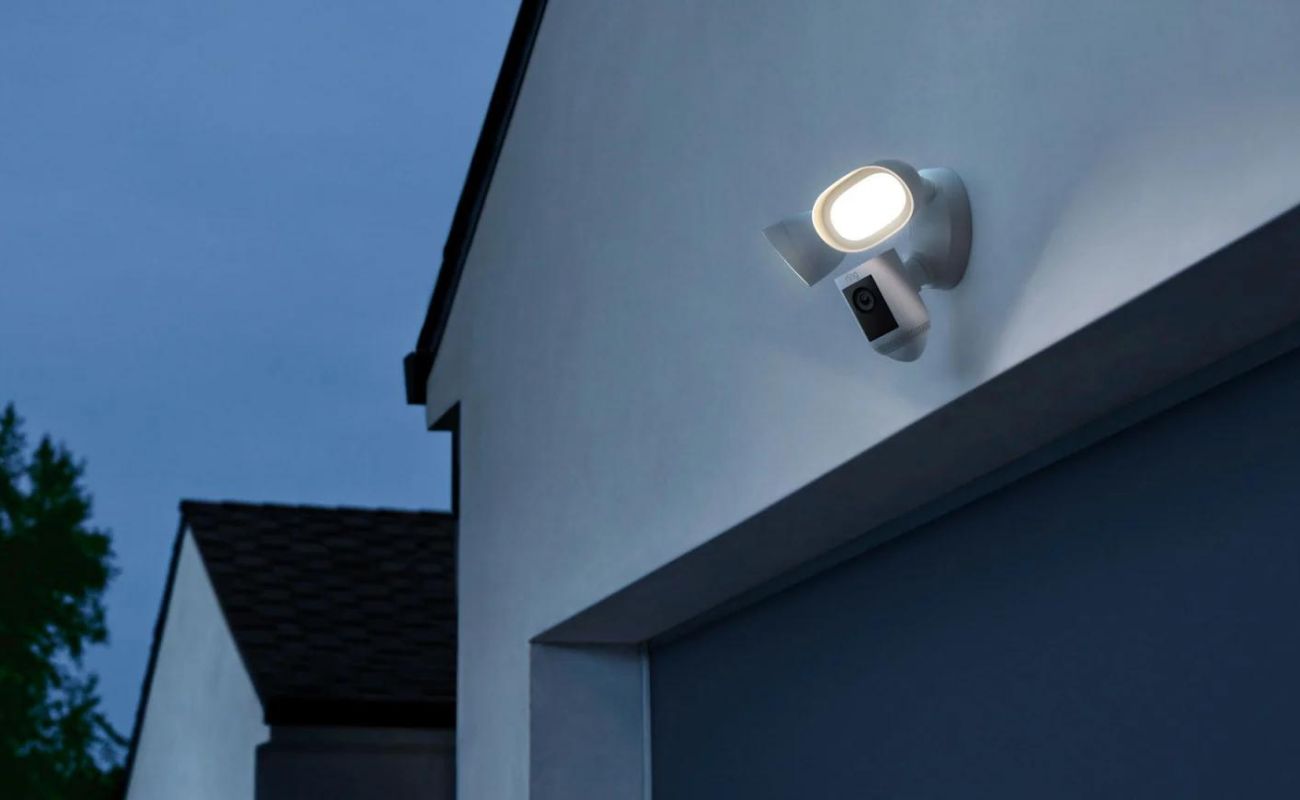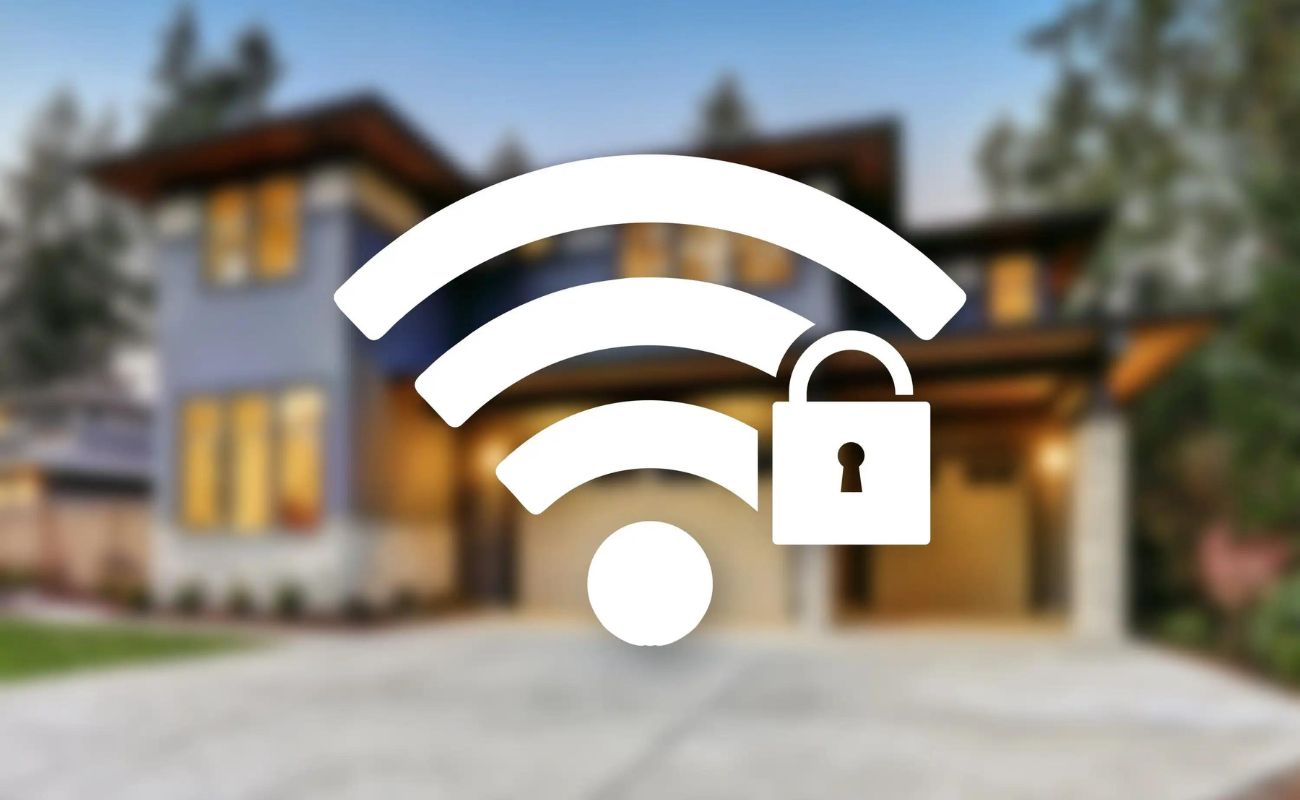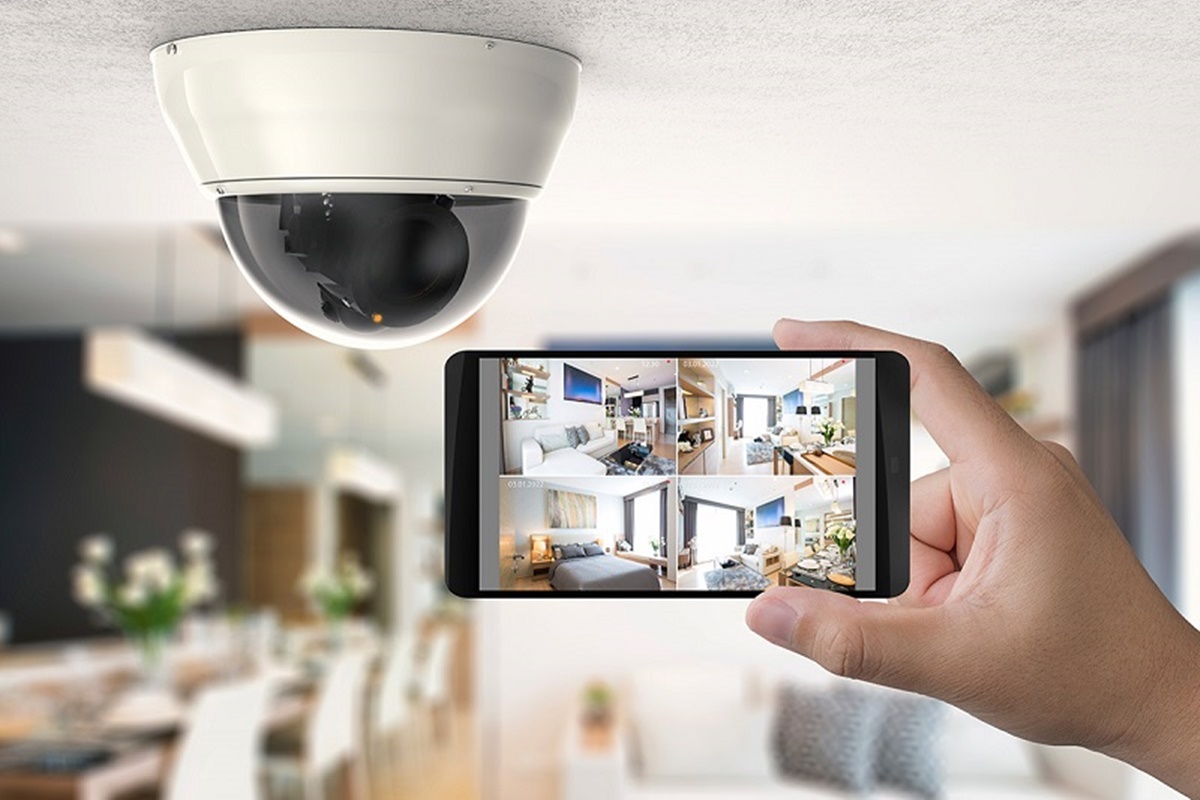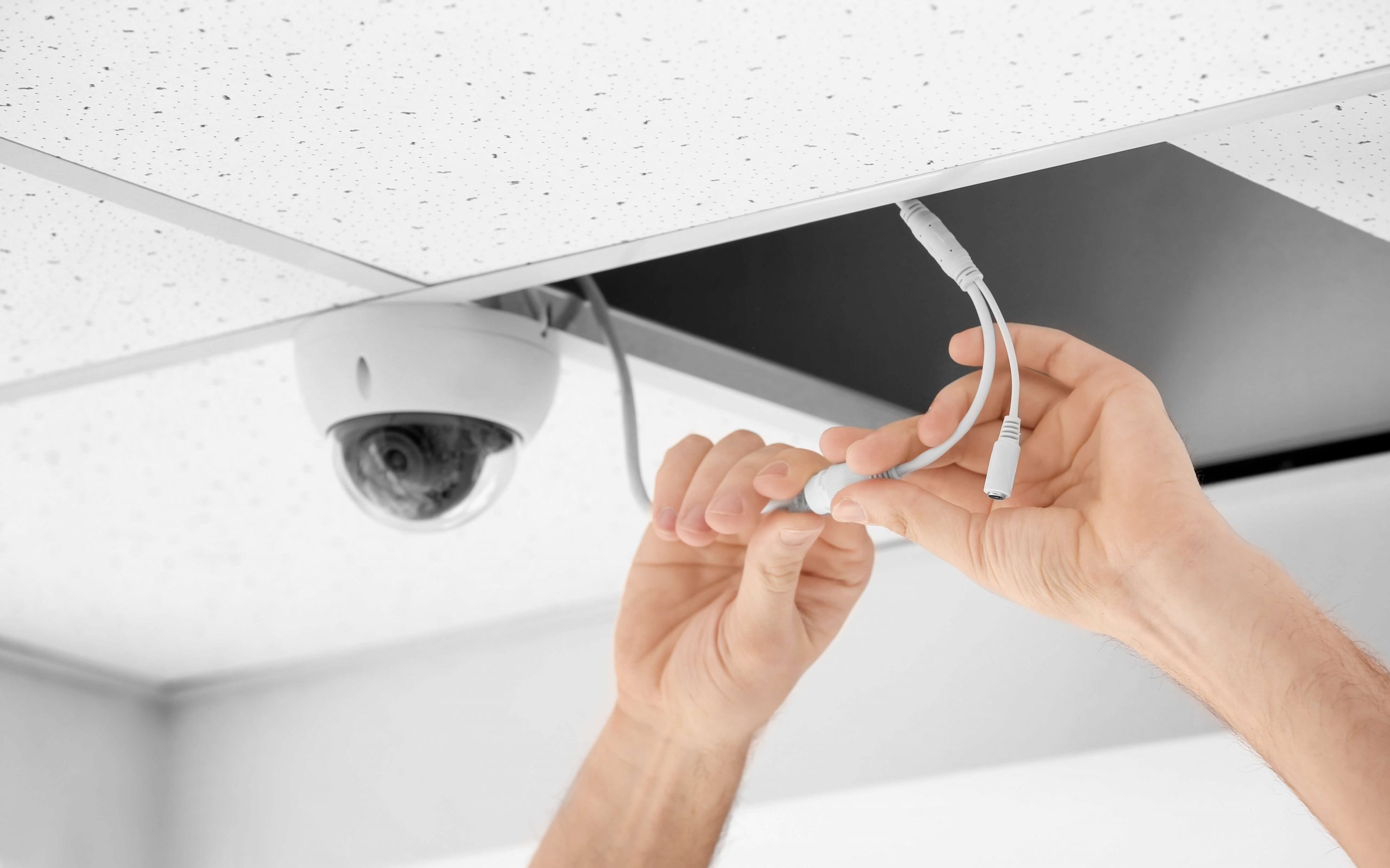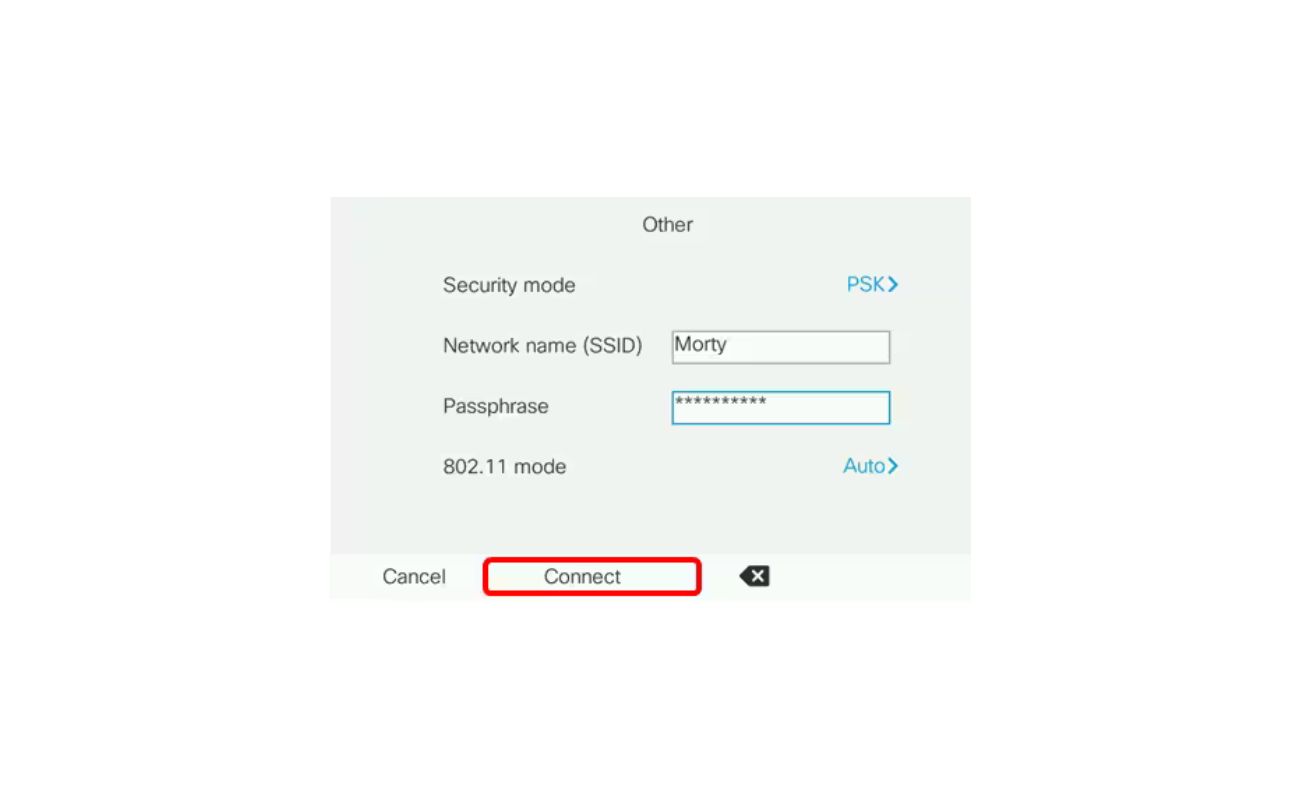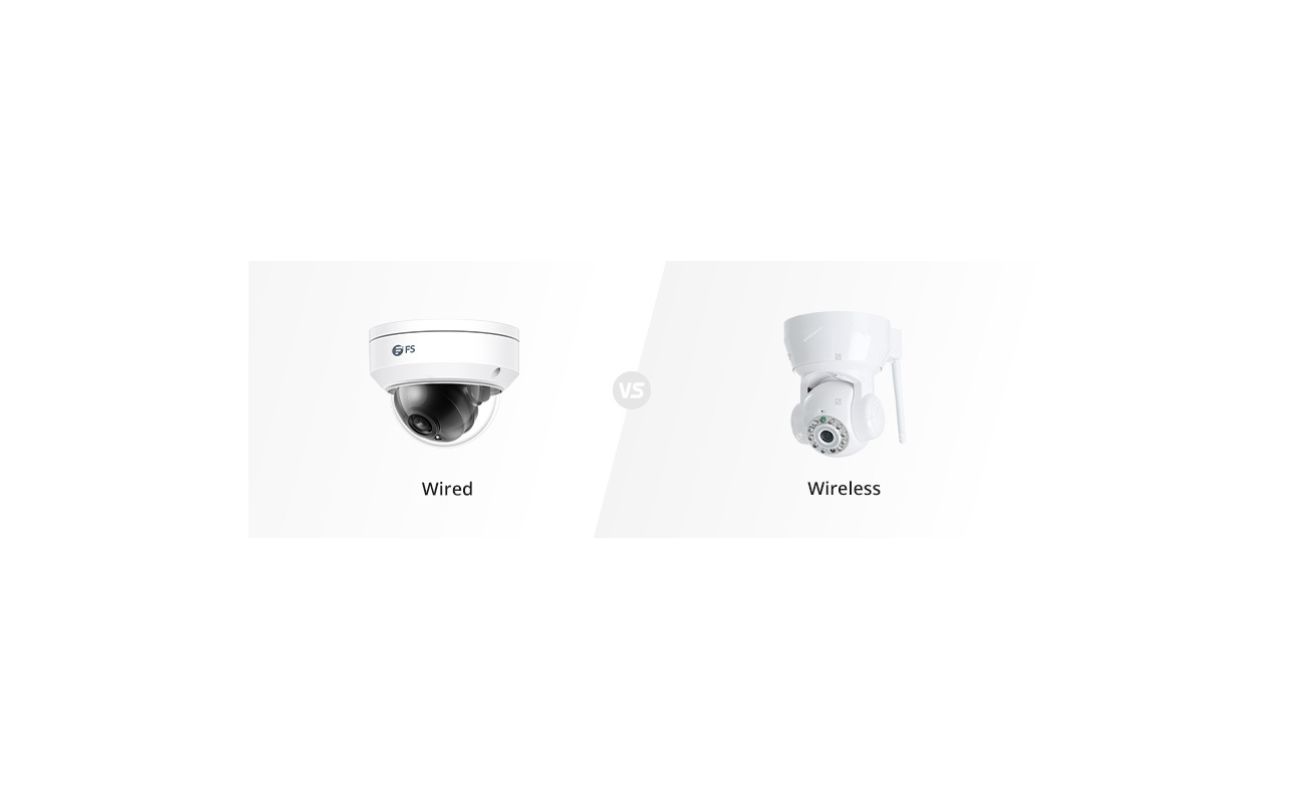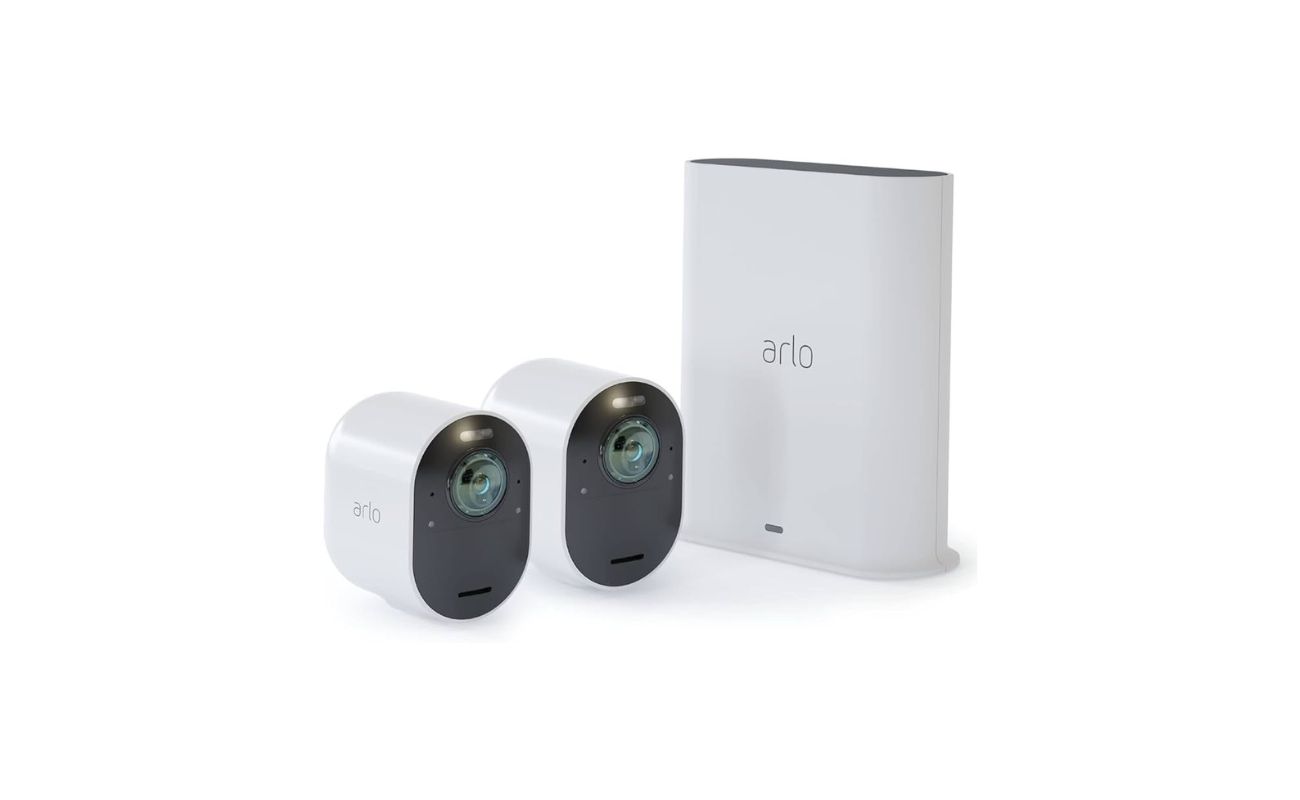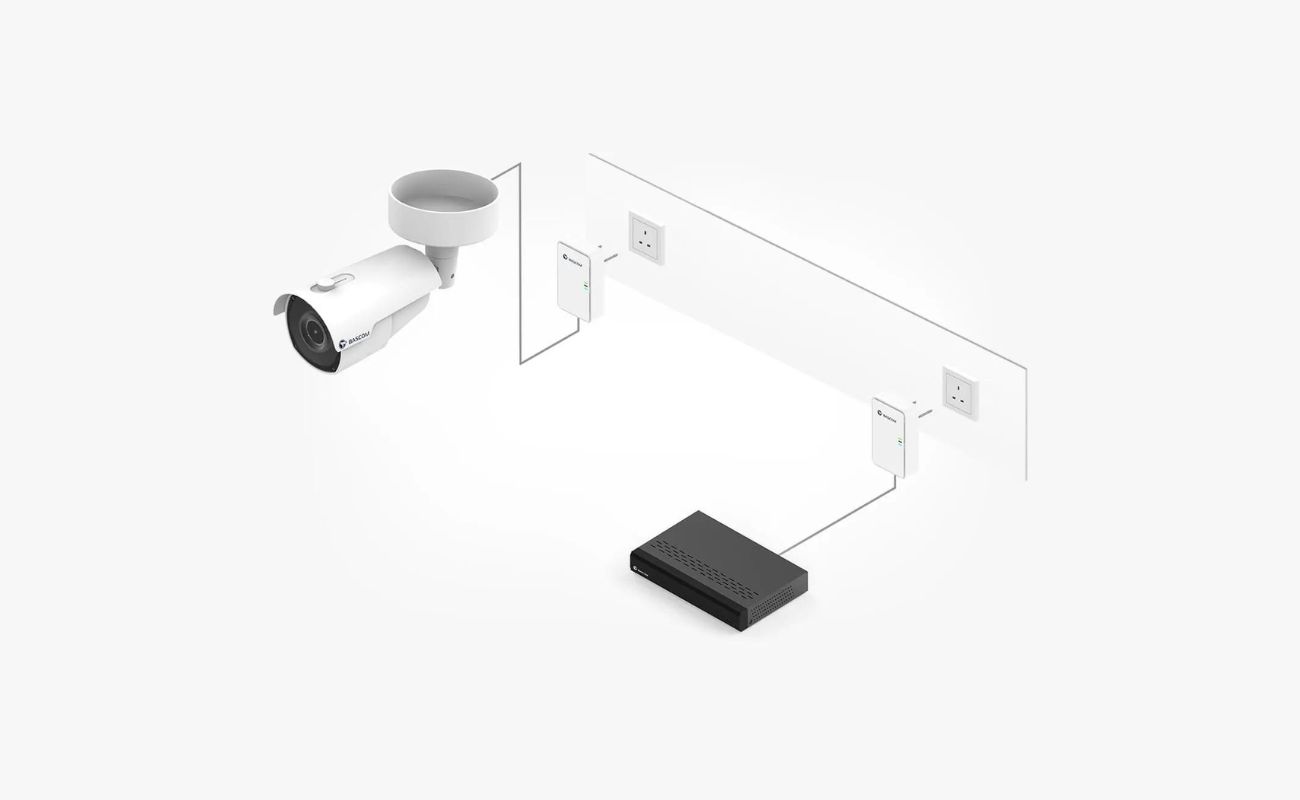Home>Home Security and Surveillance>What Is Better Wired Or Wireless Home Security System


Home Security and Surveillance
What Is Better Wired Or Wireless Home Security System
Modified: October 19, 2024
Choosing between a wired or wireless home security system? Get expert advice on the best options for your home security and surveillance needs.
(Many of the links in this article redirect to a specific reviewed product. Your purchase of these products through affiliate links helps to generate commission for Storables.com, at no extra cost. Learn more)
Introduction
When it comes to protecting your home and ensuring the safety of your loved ones, investing in a reliable home security system is crucial. With the advancements in technology, there are now two popular options to choose from: wired and wireless home security systems. Both options offer their own set of advantages and limitations, making it essential to understand the differences between them.
A wired home security system, as the name suggests, is a system that requires physical wiring to connect various components such as sensors, cameras, and control panels. On the other hand, a wireless home security system operates using wireless communication technologies, eliminating the need for extensive wiring.
In this article, we will delve into the details of both wired and wireless home security systems, discuss their advantages and limitations, and provide you with the necessary information to make an informed decision when choosing between the two.
Key Takeaways:
- Wired home security systems offer reliable connections and are less susceptible to hacking, making them a robust choice for homeowners prioritizing stability and security.
- Wireless home security systems provide easy installation, flexibility, and remote accessibility, catering to homeowners seeking convenience, scalability, and cost-effectiveness.
Definition of Wired Home Security Systems
Wired home security systems are traditional security systems that rely on physical wiring to connect the various components of the system. These components include control panels, sensors, door and window contacts, and cameras. The wiring runs through the walls and ceilings of the house, connecting the devices to a central hub or control panel.
In a wired home security system, the control panel acts as the central point of communication and control for the entire system. It receives signals from the sensors and triggers alarms or notifications in case of any suspicious activity. The sensors, placed strategically around the house, detect motion, intrusion, and other potential security breaches.
The wiring used in a wired home security system is typically concealed inside walls and can be installed during the construction or retrofitting of the house. The wires are usually made of copper, which ensures a reliable connection and minimal interference.
Wired home security systems often come with additional features such as keypads for arming and disarming the system, sirens or loud alarms to deter intruders, and the ability to integrate with other home automation devices.
Advantages of Wired Home Security Systems
Wired home security systems offer several advantages that make them a popular choice for homeowners who prioritize reliability and stability.
- Reliable Connection: Wired systems provide a more stable and reliable connection compared to wireless systems. The physical wiring ensures consistent communication between the components, minimizing the risk of signal interference or disruption.
- Less Susceptible to Hacking: Unlike wireless systems, which can be vulnerable to hacking or signal jamming, wired systems are more secure as they do not rely on wireless communication. This provides homeowners with peace of mind knowing that their security system is less susceptible to external intrusions.
- Unaffected by Power Outages: Wired systems are unaffected by power outages, as they are typically powered by the home’s electrical system or have backup battery options. This ensures that the security system remains active and functional even during blackouts.
- Extended Coverage: With wired systems, homeowners can easily expand the coverage area by running additional wiring to new locations. This allows for the integration of additional sensors and cameras, ensuring comprehensive security coverage.
- No Battery Maintenance: Unlike wireless security systems that require battery replacements or recharging, wired systems do not rely on batteries for power. This eliminates the need for regular battery maintenance and helps reduce long-term costs.
Overall, the advantages of wired home security systems make them a reliable option for homeowners who prioritize stability, enhanced security, and extended coverage. The physical connection and lack of dependence on wireless technology offer a level of assurance that is well-suited for those seeking a more robust security solution.
Limitations of Wired Home Security Systems
While wired home security systems offer many advantages, they do have a few limitations that homeowners should consider before making a decision.
- Installation Challenges: The installation process for wired systems can be complex and time-consuming. It involves running wires through walls and ceilings, which may require professional assistance and potentially result in additional costs.
- Vulnerability to Physical Damage: The physical wires of a wired system are susceptible to damage. A cut or damaged wire can disrupt the entire system, rendering it ineffective until the issue is resolved.
- Limited Flexibility: Once the wires are installed, making changes or expanding the system may require additional wiring, making the process cumbersome and costly. This lack of flexibility can be inconvenient for homeowners who frequently rearrange their living spaces or plan future home renovations.
- Dependency on Power Supply: Wired systems rely on a constant power supply to function. In the event of a power outage, unless equipped with backup battery options, the system may become inactive until power is restored.
- Higher Installation Cost: The initial installation cost of a wired system is generally higher compared to wireless systems. This is due to the additional labor and materials required to run the wiring throughout the house.
While these limitations may be a drawback, many homeowners still prefer wired systems for their reliability and stability. However, it’s crucial to weigh these limitations against the advantages before deciding on the best home security system for your specific needs.
Definition of Wireless Home Security Systems
Wireless home security systems utilize wireless communication technology to connect the various components of the system. Instead of physical wiring, these systems rely on radio frequencies, cellular networks, or Wi-Fi to transmit signals between the sensors, control panels, and other devices.
A wireless system typically consists of sensors, cameras, and a control panel. These devices communicate with each other wirelessly, allowing for easy installation and flexibility in system configuration. The sensors detect motion, entry, and other security breaches, triggering alarms or notifications to alert homeowners of potential threats.
Unlike wired systems, which require professional installation to run wiring through walls and ceilings, wireless systems can be easily installed by homeowners themselves. The absence of physical wiring means less intrusive installation and the freedom to place sensors and cameras in various locations within the home.
Wireless home security systems are often accompanied by a mobile app or web portal that allows homeowners to remotely monitor their property, receive real-time alerts, and even control the system from their smartphones or other internet-connected devices.
When choosing between a wired or wireless home security system, consider the layout of your home and your specific security needs. Wired systems are more reliable but can be costly to install, while wireless systems are easier to install and can be more flexible.
Advantages of Wireless Home Security Systems
Wireless home security systems offer several advantages that make them a popular choice for homeowners seeking convenience and flexibility in their security solutions.
- Easy Installation: Wireless systems are incredibly easy to install. Without the need for physical wiring, homeowners can set up the system themselves without the assistance of professionals. This saves time, money, and the hassle of scheduling appointments.
- Flexible Placement: Wireless components, such as sensors and cameras, can be placed anywhere within the wireless network range. This flexibility allows homeowners to position the devices strategically for optimal coverage, taking into account layout changes and individual preferences.
- Remote Access and Control: One of the key advantages of wireless systems is the ability to remotely access and control the system. Homeowners can monitor their property, receive notifications, and even arm or disarm the system using a mobile app or web portal from anywhere in the world.
- Scalability: Wireless systems are easily expandable. Homeowners can add additional sensors, cameras, or other devices to their existing system without the need for complex rewiring. This scalability allows for customization and future growth as security needs change.
- Portability: Wireless systems are portable, making them ideal for renters or those who frequently move. They can be easily disassembled and reinstalled in a new location without the need for extensive rewiring or modifications.
- Integration with Home Automation: Wireless systems often integrate seamlessly with other home automation devices. This allows for the integration of security features with smart home functionalities, such as controlling lights, thermostats, and locks, all from a single platform.
Overall, the advantages of wireless home security systems make them a convenient and flexible option for homeowners. The ease of installation, remote accessibility, scalability, and integration capabilities make wireless systems a popular choice for individuals seeking a modern and adaptable security solution.
Limitations of Wireless Home Security Systems
While wireless home security systems offer many advantages, it is essential to consider their limitations before making a decision. Understanding these limitations will help homeowners make an informed choice that best suits their needs.
- Reliability of Wireless Signal: Wireless systems rely on radio frequencies, cellular networks, or Wi-Fi signals to communicate between devices. If the signal is weak or interrupted due to external factors like distance, interference, or network outages, it can affect the reliability of the system.
- Battery Life and Maintenance: Wireless devices, such as sensors and cameras, rely on batteries for power. This means homeowners will need to regularly check and replace batteries to ensure that the devices remain operational. Failure to do so can result in gaps in security coverage.
- Potential for Signal Interference or Hacking: Wireless signals can be prone to interference from other electronic devices or even malicious hacking attempts. While security measures are in place to mitigate these risks, it’s essential to choose a reliable and secure wireless system to minimize vulnerabilities.
- Dependence on Internet or Cellular Networks: Wireless systems rely on internet or cellular networks to transmit signals and communicate with remote monitoring systems. If the internet or cellular service goes down, it can temporarily disrupt communication and remote access to the system.
- Limited Range: Wireless systems typically have a limited range, especially compared to wired systems. This means that devices may need to be placed strategically to ensure complete coverage within the desired protection area. Additional signal repeaters or extenders may be required for larger properties.
- Initial Setup and Equipment Costs: While wireless systems offer convenience and flexibility, they may require a higher initial investment compared to wired systems. The cost of purchasing wireless devices, such as cameras and sensors, along with the necessary networking equipment, can add up.
It is important to consider these limitations and weigh them against the advantages of wireless home security systems. Ultimately, choosing the right system will depend on the specific needs, preferences, and circumstances of each homeowner.
Factors to Consider in Choosing Between Wired and Wireless Systems
When it comes to choosing between a wired and wireless home security system, several factors should be taken into consideration. Each type of system has its own advantages and limitations, so it’s important to evaluate these factors to determine which option best fits your needs.
- Reliability: If reliability is your top priority, a wired system may be the better choice. Wired systems provide a more stable and secure connection since they are not susceptible to signal interference or hacking. They also remain functional during power outages. However, wireless systems have come a long way in terms of reliability, and advancements in technology have made them more robust.
- Installation: Consider your installation preferences and capabilities. Wired systems require professional installation, as they involve running and concealing wiring throughout your home. On the other hand, wireless systems are much easier to install, and most homeowners can set them up themselves without any specialized knowledge or tools.
- Flexibility: If flexibility is important to you, wireless systems have the advantage. Wireless devices can be easily moved, added, or reconfigured, allowing you to adapt your security system as your needs change. Wired systems, on the other hand, are more permanent and can be difficult to modify once installed.
- Scalability: Consider the future scalability of your security system. If you anticipate the need to expand or modify your system as your home or security needs evolve, wireless systems offer more flexibility. Adding or removing sensors and cameras in a wireless system is relatively easy and doesn”t require rewiring, making it cost-effective and convenient.
- Cost: Budget is an important consideration. Wired systems typically have a higher initial cost due to professional installation and materials required for wiring. However, they may have lower long-term costs as they don’t require battery replacements. Wireless systems have lower initial costs, but ongoing expenses like battery replacements for wireless devices should be factored in.
- Remote Access: If remote access and control are important to you, wireless systems have an edge. They allow you to monitor and control your security system through mobile apps or web portals, providing convenience and peace of mind when you’re away from home. Some wired systems may also offer remote access, but options vary.
Considering these factors will help you make an informed decision when choosing between a wired and wireless home security system. Assess your priorities and requirements to determine which option aligns best with your needs, budget, and lifestyle.
Conclusion
Choosing the right home security system is an important decision to ensure the safety and protection of your household. Wired and wireless systems both offer unique advantages and limitations that should be carefully considered.
Wired home security systems provide reliable and stable connections, making them a solid choice for those seeking a robust and secure solution. Although they require professional installation and may involve higher initial costs, wired systems offer benefits such as less vulnerability to hacking, continuous functionality during power outages, and extended coverage options.
On the other hand, wireless home security systems offer easy installation, flexibility in device placement, and remote accessibility. They are suitable for homeowners who prioritize convenience, scalability, and cost-effectiveness. While wireless systems may have limitations such as potential signal interference, battery maintenance, and dependence on internet or cellular networks, advancements in technology have significantly improved their reliability and security.
Ultimately, the decision between wired and wireless systems depends on your specific needs and preferences. Consider factors like reliability, installation requirements, flexibility, scalability, cost, and remote access to select the system that aligns best with your priorities.
It’s advisable to research and compare different system providers, their features, and customer reviews before making a final decision. Seeking professional advice from home security experts can also provide valuable insights to help you make an informed choice.
Remember, investing in a home security system is an investment in peace of mind and the protection of your loved ones and valuable belongings. By carefully evaluating your options and selecting a system that meets your requirements, you can enhance the security of your home and enjoy a greater sense of safety and security.
Frequently Asked Questions about What Is Better Wired Or Wireless Home Security System
Was this page helpful?
At Storables.com, we guarantee accurate and reliable information. Our content, validated by Expert Board Contributors, is crafted following stringent Editorial Policies. We're committed to providing you with well-researched, expert-backed insights for all your informational needs.
